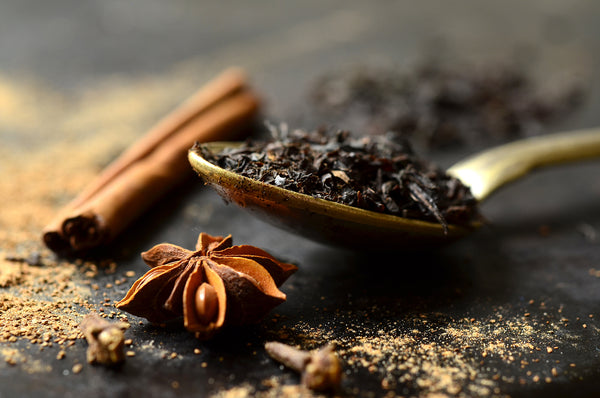New research on why tea should be a part of your New Year’s Resolutions
Posted on December 27 2014

This is the time of year for resolutions. And although I don’t think I could possibly increase my tea drinking commitment, without seriously losing sleep, I feel responsible for spreading the word. So let’s just say one of my New Year’s resolutions, is to more effectively share the info on the health benefits of tea. To that end, here is a quick review of some of the more interesting, scientific research on the health benefits of tea from 2014. Take a look. Then you can decide how big a role tea will play in your life during 2015. Personally, I’m staying committed!
1. From the Leukemia Research Journal: Regular green tea consumption (more than 2 cups per day) was found to significantly reduce the risk of myelodysplastic cancers, cancers such as leukemia and refractory anemias, caused by abnormalities in bone marrow cells.
2. From the Journal Food Chemistry and Toxicology: Consumption of high dose green tea supplements and concentrates can cause liver toxicity which does not occur with drinking green tea. So just enjoy a cup or several a day!
3. From Archives of Oral Biology: EGCG, the most abundant polyphenol in green tea, effectively eradicated Enterococcus faecalis, the bacterium most commonly associated with root canal infections.
4. From the Journal of Ethnopharmacology: Black tea can modulate hyperglycemia after meals by inhibiting the breakdown of complex sugars in the small intestine. Black tea can therefore be useful in the treatment of borderline type 2 diabetes melitus.
5. From Taipei Biomedicine: Green tea polyphenols show promise as a natural product to protect from myocardial disease damage.
6. From Arthritis Research and Therapy Journal: EGCG can both slow down the progress of osteoarthritis and reduce the pain associated with it.
7. From the Indian Journal of Physiology and Pharmacology: Black tea found effective in protecting against damage from cadmium poisoning.
8. From the Journal of Food Function: Pu-ehr, black tea and Oolong teas were found to suppress weight gain in mice.
9. From the Journal of International Biomedical Research: Pu-ehr tea was found to break down FET proteins, the proteins associated with ALS.
10. We’ve always recomended puer (pu-ehr) teas as digestion aids. Now, from Molecular Medicine Reports: Puer tea can be used as a functional food to prevent constipation.
11. From the Journal of Molecular and Nutritional Food Research: Rooibos can significantly reduce the risk of osteoporosis.
12. From Cytotechnology: Rooibos found to contain effective anti-diabetic phytochemicals.
References:


0 comments